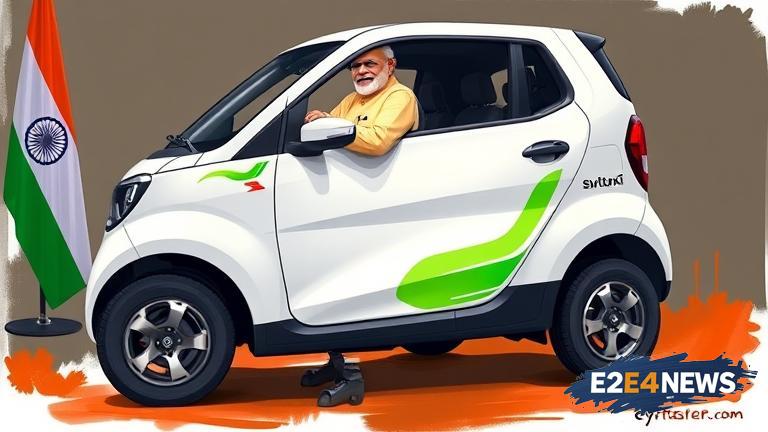In a major boost to India’s electric vehicle (EV) sector, Prime Minister Narendra Modi launched Suzuki’s first-ever battery electric vehicle, eVitara, at the company’s Hansalpur plant in Gujarat. The launch of eVitara is a significant milestone in India’s electric mobility journey, which is expected to reduce the country’s dependence on fossil fuels and mitigate climate change. The eVitara is Suzuki’s first-ever battery electric vehicle, which is expected to be a game-changer in the Indian automotive market. The vehicle is equipped with advanced technology and features, including a powerful electric motor, advanced battery management system, and a range of up to 300 km on a single charge. The launch of eVitara is part of Suzuki’s plan to invest heavily in electric vehicle technology and expand its product portfolio in the Indian market. The company has already announced plans to launch multiple electric vehicles in India in the next few years. The Indian government has also been actively promoting the adoption of electric vehicles in the country, with several initiatives and incentives announced in recent years. The government has set a target of having at least 30% of new vehicle sales as electric by 2030. The launch of eVitara is expected to give a major boost to the Indian EV sector, which has been growing rapidly in recent years. The sector has seen significant investment from major automakers, including Suzuki, Tata Motors, and Mahindra & Mahindra. The Indian EV market is expected to reach $7.3 billion by 2025, growing at a CAGR of 44% from 2020 to 2025. The launch of eVitara is also expected to create new job opportunities in the Indian automotive sector, which is one of the largest employers in the country. The vehicle is expected to be priced competitively, making it an attractive option for Indian consumers who are increasingly looking for environmentally friendly and cost-effective transportation options. The eVitara is also expected to be exported to other countries, including those in Europe and Asia, which will help to boost India’s automotive exports. The launch of eVitara is a significant milestone in Suzuki’s history in India, which dates back to the 1980s. The company has been a major player in the Indian automotive market, with a range of popular vehicles, including the Alto, WagonR, and Swift. The company has also been investing heavily in research and development in India, with a focus on electric vehicle technology. The launch of eVitara is expected to further strengthen Suzuki’s position in the Indian market, which is one of the largest and fastest-growing automotive markets in the world. The Indian government has also been actively promoting the development of electric vehicle charging infrastructure in the country, with several initiatives announced in recent years. The government has set a target of having at least 2,500 public charging stations in the country by 2025. The launch of eVitara is expected to give a major boost to the development of electric vehicle charging infrastructure in India, which will help to promote the adoption of electric vehicles in the country. Overall, the launch of eVitara is a significant milestone in India’s electric mobility journey, which is expected to have a major impact on the country’s automotive sector and environment. The vehicle is expected to be a game-changer in the Indian automotive market, with its advanced technology, features, and competitive pricing. The launch of eVitara is also expected to create new job opportunities, boost India’s automotive exports, and promote the development of electric vehicle charging infrastructure in the country.
